2014 election at-a-glance
Primary election deadlines and dates
Primary voter registration: July 10, 2014
Early walk-in voting: July 28, 2014 - August 7, 2014
Primary absentee application: August 2, 2014
Primary election: August 9, 2014
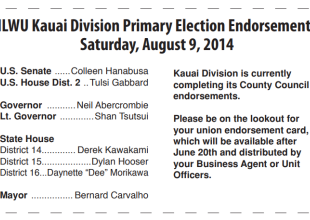
Primary election deadlines and dates
Primary voter registration: July 10, 2014
Early walk-in voting: July 28, 2014 - August 7, 2014
Primary absentee application: August 2, 2014
Primary election: August 9, 2014
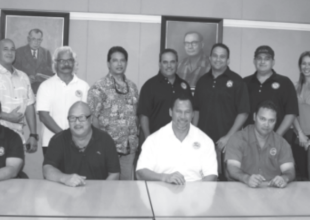
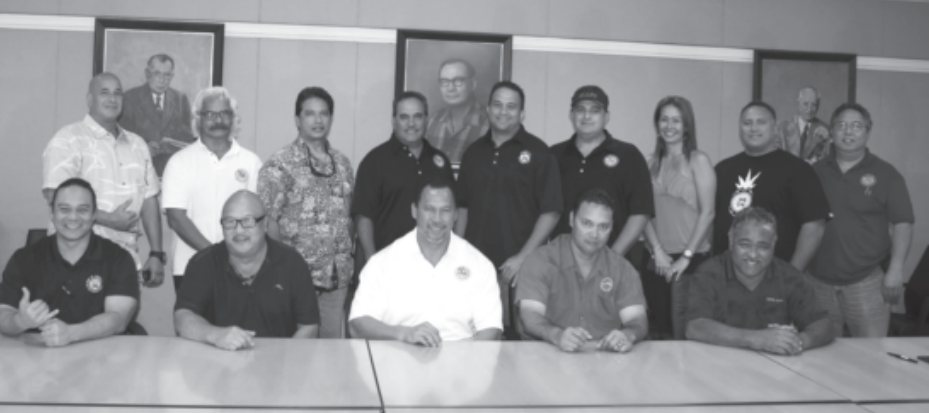
Hawaii Longshore Division negotiating committee (sitting, l-r): Secretary-Treasurer and Unit 4201 Overall Secretary Drake Delaforce, Division Director Nate Lum, Statewide Negotiating Committee Chair and Unit 4201 Overall Chair Elgin Calles, Unit 4201 Overall Vice Chair Dustin Dawson, International Vice President (Hawaii) Wesley Furtado.
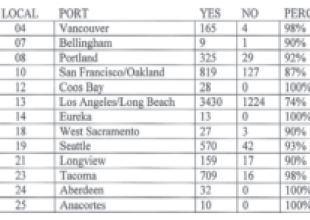
Longshore workers voted overwhelmingly to ratify the tentative contract agreement reached in February with the Pacific Maritime Association.
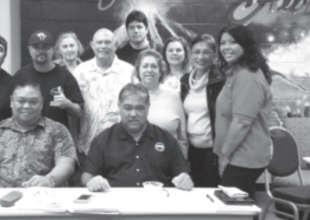
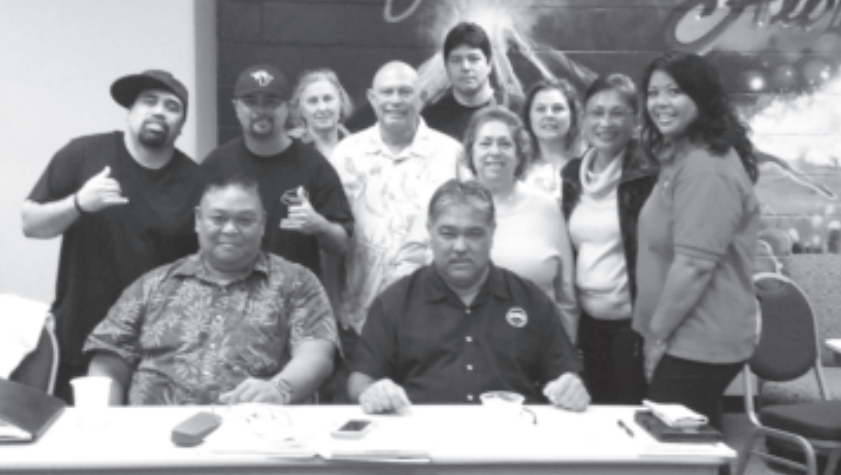
Grand Hyatt Kauai negotiating committee (sitting, l-r): Local Vice-President Teddy Espeleta and International Vice-President (Hawaii) Wesley Furtado. Standing (l-r): Hoku Keamoai, Tyson Moises, Business Agent Pam Green, Teddy Rentrop, Unit Chairperson Joey Silva, Trudy Azeka, Kori Benzine, Nancy Abigania and Rhonda Morris. Not pictured: Division Director Michael Machado.
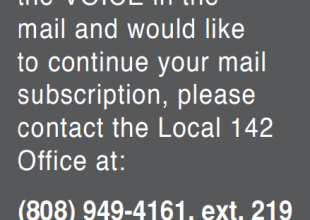
A first time contract for Housekeepers at Montage Kapalua Bay has been ratified by the 29 members who now belong to ILWU Local 142, Maui Division. The advantages of joining a union—obtaining better wages, employer provided medical and dental benefits, job security and decent working conditions—is clearly demonstrated in the newly negotiated agreement.

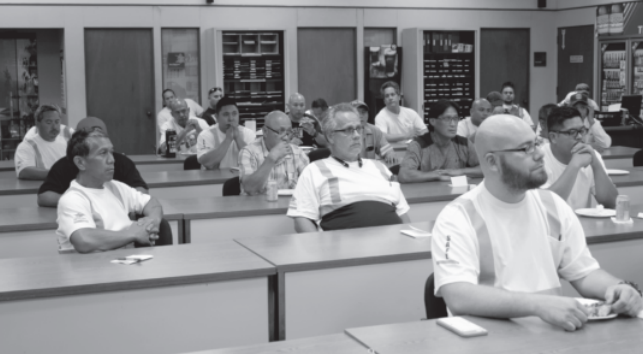
Attentive members learn about their first contract before voting on whether to accept the new contract.
Delivery drivers, container drivers, delivery helpers, warehouse workers, and warehouse utility workers at Anheuser-Busch Sales of Hawaii, Inc. ratified their first union contract overwhelmingly on April 29, 2016.
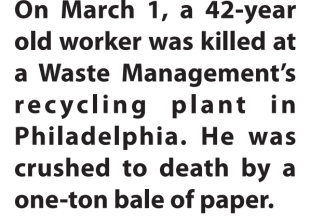
Americans are beginning to dump our throw-away economy. Curbside recycling is now available in most west coast communities and more than 9,000 cities across America. It’s helping to divert one-third of our waste that used to be burned or buried.
Recycling is also good because it conserves raw materials and saves money for local governments. And it reduces greenhouse gases that cause global climate change.
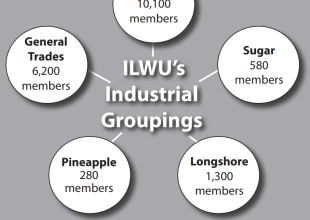
First of all, the Voice of the ILWU is the official newspaper of the ILWU Local 142. You are receiving the newspaper because you are now a member of the ILWU. As a member of ILWU Local 142, you are part of a long and proud tradition where workers join or form organizations for their mutual benefit and to promote fairness and justice on the job. These organizations are called labor unions, trade unions, or just unions.
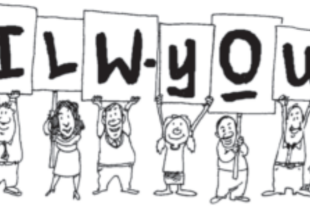
Believe it or not, most workers organize into unions because of bad working conditions and poor treatment by management and not for higher wages and benefits. When workers are organized into unions, they gain the power to change their working conditions and demand respect and fair treatment from management.
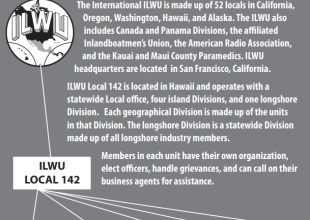
“Units” are what we call the ILWU organization at your workplace. This means that sometime in the past, the workers at your company organized and a majority voted to unionize with the ILWU. The workers then negotiated a collective bargaining agreement (also called union contract) with your employer which puts in writing your wages, benefits, working conditions, and rights on the job.
